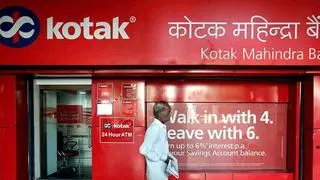Even 20 years after liberalisation, non-life insurance penetration in the country is at lower levels vis-à-vis potential, growing from 0.50 per cent of GDP in 2002 to 1 per cent in 2021. Some say the lower penetration is due to a bigger denominator, while others say insurance is not growing as much as the other sectors. In contrast, global non-life insurance penetration is currently over 4.1 per cent.
India holds enormous opportunities to grow its under penetrated non-life insurance market at par with global levels. So, larger investment is required in distribution infrastructure, products, technology, services innovation, and other such initiatives to popularise insurance in the country. Since liberalisation, insurance sector has been under strict governance of investment and expenses. In fact, it was a necessity at that time as the industry was being opened to the private sector. The protection of capital and maintaining minimum solvency levels have been paramount.
The industry has long been looking forward to relative decontrol of expense limits and choice of investment to gratify its growth appetite. One such long standing petition is the ‘single expense limit’ for insurers.
Regulatory control over expenses of an insurer before the present exposure draft (on Expenses of Management of Insurers Transacting General or Health Insurance Business Regulations, 2022) has been at a microlevel. There have been limits on remuneration, commission, and rewards to insurance intermediaries at product and category levels, besides an overall limit of expenses for the insurers. Such limits of expenses have fairly prevented the insurers from the choice of making larger investments in distribution, either in the form of commission and rewards to intermediaries or innovation in the service offerings.
‘Discipling the disciplined’
The exposure draft released by IRDAI in early August addresses most of the challenges. It contemplates a single enterprise level limit of expenses other than the commission and remuneration. However, IRDAI has subsequently released another exposure draft on commission and remuneration to intermediaries and other insurance distributors, removing all sub-limit from the structure. It is understood that the commission and remuneration sub-limit in the overall Expenses of Management is arising out of a statutory imposition than a regulatory Act.
Few areas in the exposure draft requires deliberations. Calculation methodology of limit allowability, basis average Expenses of Management (EoM) of preceding three years as proposed in the exposure draft, might create a scenario of ‘disciplining the disciplined only’ by fixing lower limit for the insurers, who manage their business with lower expenses. Besides, the concept of Expense Rate might constrain growth of business, as it would require insurers to ensure growth only with the average expenses of preceding three years.
Government welfare insurance schemes are normally with lower expenses because of the large denominator effect. Insurers having larger exposure in such schemes do traditionally have lower EoM, as such schemes bring down the enterprise level EoM considerably.
Under the proposed structure of expenses management, insurers would have lower ‘insurance rate’ without any certainty that they would be able to participate in government schemes every year at the same level. In any year, if any such insurer fails to avail a government bid to participate in the schemes, they might be subjected to a expense restriction continuously for years after.
Such restriction not only tightens their business operations, but also hinders them from growth at least for three successive years. The concept would be similar to commercial lines portfolios. This apprehension among insurers might discourage them from participating in large insurance portfolios, such as government schemes or large commercials business, with not much certainty of renewal. As far as allowances are concerned, among the sectors earmarked for allowances, one that deserves it more than others is the retail health segment. Even though Covid has increased health insurance awareness, the country has a long way to go before it demonstrates a respectable health insurance penetration.
Despite all such uncertainties, the IRDAI’s attempt to liberate the industry from constraints of multi-layered expense limits would certainly trigger a cyclic force to grow the insurance market of the country. As the market grows, the impact of expenses would automatically come down.
The author is Managing Director & CEO, Universal Sompo General Insurance








Comments
Comments have to be in English, and in full sentences. They cannot be abusive or personal. Please abide by our community guidelines for posting your comments.
We have migrated to a new commenting platform. If you are already a registered user of TheHindu Businessline and logged in, you may continue to engage with our articles. If you do not have an account please register and login to post comments. Users can access their older comments by logging into their accounts on Vuukle.